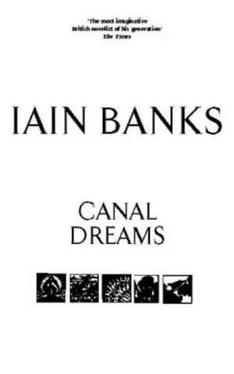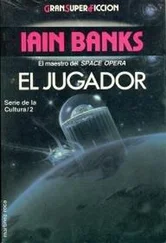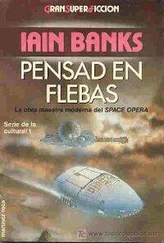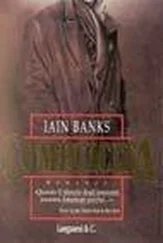She woke up on the floor. There was blood in her mouth and her head ached. Her hands were seared and red and tight, and she sat there, legs crossed, rocking back and forward with her hands in her lap, weeping quietly to herself and wishing that life was like a fairy story, so that her falling tears would heal her hands where the drops fell on the raw red skin.
Her mother seemed to accept her story about pulling an iron rod out of a bonfire on the way back from school: Mrs Onoda said nothing about the patch of missing hair, or the bruise on the side of her daughter's face, and Hisako thought her mother stupid and easily fooled for a while, until she heard the stifled sobs coming from her mother's room that night. Hisako let her hands be bandaged. She would lie in her mother's arms, being read to, or rest her English books in her lap, turning the pages with her nose, or just sit with her cello, looking at it and rubbing her cheek against it. Whenever she started to cry she buried her face in the crook of her elbow, in case her tears stained the cello's varnished surface.
Mr Kawamitsu had been delighted by the progress she'd made. She was exceptionally gifted, he told her mother (who sighed when she heard this, because it meant it would cost money). Mr Kawamitsu was very excited; he had written to the Tokyo Music Academy, and they had agreed to listen to the child, to see if she was as good as he said. If she was, she would be given a bursary. Of course, this meant travelling to Tokyo… Mrs Onoda went to the bank.
It was too soon after her hands had been burned, but the date had been set and Mrs Onoda was terrified of upsetting the Academy. They were both sick on the ferry. She still felt terrible when she was taken into the room in the old building near Yoyogi Park, to sit in front of a dozen stern-looking men.
She played; they listened. They looked just as stern when she'd finished, and she knew she had played badly, that she had thrown away her chance and Mr Kawamitsu would be made to look stupid and her mother would weep behind the screen again.
She was right; she didn't get the bursary. They did offer her a place, but Mrs Onoda couldn't afford the money. Mr Kawamitsu looked sad rather than angry, and said she must still play, because she could do something very few people could do, and such a gift was not just hers, but belonged to everybody, and she owed it to everyone else to practise diligently. She found that difficult, and her playing became mechanical and without lustre.
The Academy sent for her again a month after their offer of a place had been rejected; another chance, for the last bursary place. But Mrs Onoda had little money left. Hisako thought about it, and came solemnly to her mother one evening holding the cello like an offering at a shrine, suggesting they sell the instrument to raise the money for the fare; she could borrow one. If she had a chance to practise she might be able to adapt to a new cello… Her mother ruffled her hair, and went to the bank the next morning to take out a loan.
The ferry journey was smooth and for a long time she watched the wake the ship left stretching back to the dark island of her birth.
In the forbidding room in the old building near Yoyogi Park she played again; again the stern-looking men listened. Because her hands had healed, she could use them to tell the judges how much it had hurt when they were forced on to the rough metal of the radiator; how much she had been hurt; how much her mother had been hurt; how much everything hurt. They still looked stern but they gave her the bursary.
She wore the pollera and one of the mola blouses to the party on the Nadia , the third ship stranded in the lake. The Nadia was a general cargo vessel, registered in Panama itself, but Japanese-owned. Like the Nakodo , it had been crossing from Pacific to Atlantic when the canal was closed.
The Nadia's parties were held under an awning on an upper deck. It was a clear night for a change, and on the way over in the Nakodo's launch, heading for the bright patch of light and the sound of Latin music, she watched the stars, fabulous and strewn, arching across the sky above the darkness of the lake.
Philippe was already there, looking tall and fine and. tanned in his white dress uniform. She felt the way she always did when she saw him like this; afraid and embarrassed. Afraid that he would look at her one day and, instead of smiling (as he did now, coming forward, taking her hand, kissing it), scowling. She would know what that scowl meant; it would mean that he no longer wanted her, that he was wondering what he'd ever seen in her, what had possessed him to take this older woman, this small-breasted, unglamorous Japanese woman to his bed; that he was thinking how foolish, how blind he must have looked to everybody else, and how he could gracefully disengage from the association. So she searched his face for that look at almost every meeting, knowing the expression might be fleeting, knowing it might be almost invisibly brief, but sure she would recognise it when it came.
Her embarrassment was caused simply by the thought; what was she doing with this handsome young man?
'You are very ethnic tonight, Philippe said to her, looking her up and down as they went to the drinks table.
She made a flouncing movement with the pollera. 'And you look most dashing.
'But I expand, he patted his jacket over his belly. 'Too much of this. He nodded at the food and drink displayed on the tables under the awning.
She squeezed his hand. 'More exercise, she told him, then said hello to the steward at the drinks table, and asked for a Pernod.
'Do you want to dive tomorrow? Philippe asked her. 'We can dive at night, perhaps? The lights are ready. Philippe had wanted to dive in the lake at night for weeks, but didn't have any underwater lights apart from a couple of small torches. Viglain, the engineer on Le Cercle , had agreed to make some lights for them.
She nodded. 'Yes, let's do that. She raised her glass to his. Santé.
Santé.
Nobody had braved the journey from Frijoles, a few kilometres away down the canal towards the Pacific coast, or Gatún, about the same distance away in the direction of the Atlantic. Hisako spent a great deal of time dancing; the only other women there were the wife of Captain Bleveans — the Nadia's skipper — and Marie Boulard, Le Cercle's junior deck officer.
They sat down to eat; ceviche de corvina, tamales, carimañolas , lobsters and prawns. She passed on the chicharrones , small pieces of fried pork crackling.
She talked to Captain Bleveans; he'd been the only one of the people on the ships who'd known anything about her and her career before they met, though a few of the rest had at least heard of her. Bleveans had some of her more recent recordings, and she'd let him tape the two recitals she'd given since the ships were trapped.
On the other side of the table, Orrick and Broekman were arguing. Mandamus seemed to be reading Mrs Bleveans's hand. Philippe was talking to one of the Nadia's engineers; Endo was doing his best to converse with his opposite number on the ship.
She tried not to keep looking at Philippe all the time.
They'd first met at a similar party on his ship, Le Cercle. It had been less than a week since the closure of the canal. Captain Herval, the Nadia's captain, had suggested that the officers of the three ships have an informal gathering; passengers were invited too.
She'd been talking to Mrs Bleveans. The wife of the Nadia's captain was a tall, thin woman who always dressed well and. never appeared without subtle but obviously carefully applied make-up, but whose face, Hisako thought, looked faintly — if tastefully — dismayed, as though you were forever telling her something she really did not want to hear, but was not prepared to stoop to arguing about.
Читать дальше












